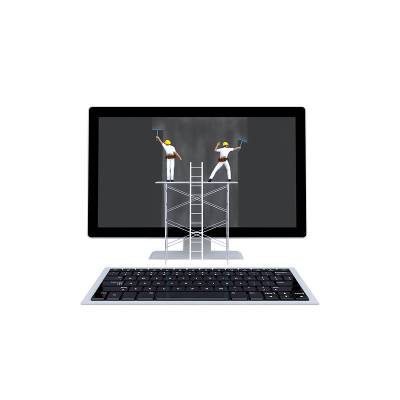 Today, almost everybody has an Internet-connected camera in their pocket. A crazy amount of photos are posted online. In fact, Facebook alone claims to have over 250 billion photos, with 350 million user images posted every day. All of these pictures are fun, but how do you ensure that only the people you want to see your photos are seeing them?
Today, almost everybody has an Internet-connected camera in their pocket. A crazy amount of photos are posted online. In fact, Facebook alone claims to have over 250 billion photos, with 350 million user images posted every day. All of these pictures are fun, but how do you ensure that only the people you want to see your photos are seeing them?
Macro Systems Blog
 In an attempt to push users toward the most recent installment of Internet Explorer (IE 11), Microsoft has announced that, as of January 2016, all older versions of Internet Explorer will reach their end-of-support date. This means discontinued patching and security update support, putting all who refuse the upgrade at risk.
In an attempt to push users toward the most recent installment of Internet Explorer (IE 11), Microsoft has announced that, as of January 2016, all older versions of Internet Explorer will reach their end-of-support date. This means discontinued patching and security update support, putting all who refuse the upgrade at risk.
 A few months ago, we mentioned that a ransomware called CryptoLocker was spreading at a dangerous rate due to the GameOver Zeus malware. The ransomware would lock down files on victims' computers until a fee was paid, but not anymore. Now, with the help of FireEye and Fox-IT, a solution has been created called DecryptCryptoLocker.
A few months ago, we mentioned that a ransomware called CryptoLocker was spreading at a dangerous rate due to the GameOver Zeus malware. The ransomware would lock down files on victims' computers until a fee was paid, but not anymore. Now, with the help of FireEye and Fox-IT, a solution has been created called DecryptCryptoLocker.
 If your business purchases hardware or other supplies from a retailer, or if you are your own point-of-sale, your company might be targeted by a new type of Point-of-Sale malware known as Backoff. The malware is capable of stealing credit card information from unsuspecting victims, and should be a cause for concern for those unprepared to fight against it.
If your business purchases hardware or other supplies from a retailer, or if you are your own point-of-sale, your company might be targeted by a new type of Point-of-Sale malware known as Backoff. The malware is capable of stealing credit card information from unsuspecting victims, and should be a cause for concern for those unprepared to fight against it.
 Don't trust Google and Yahoo just yet - they might be fake! On July 10th, 2014, Microsoft issued a warning concerning the nature of identical SSL certificates and domains of some popular sites that might allow malicious copycat sites to emerge. As of now, the cause is unknown, but we know that this could be dangerous if you're not prepared to deal with it.
Don't trust Google and Yahoo just yet - they might be fake! On July 10th, 2014, Microsoft issued a warning concerning the nature of identical SSL certificates and domains of some popular sites that might allow malicious copycat sites to emerge. As of now, the cause is unknown, but we know that this could be dangerous if you're not prepared to deal with it.
 The topic of online pornography can be rather uncomfortable to discuss, but it’s an issue that business owners need to be aware of; especially considering that 70 percent of all online porn access happens during business hours! Whoa. This statistic has some naughty implications for what your employees may be doing on company time.
The topic of online pornography can be rather uncomfortable to discuss, but it’s an issue that business owners need to be aware of; especially considering that 70 percent of all online porn access happens during business hours! Whoa. This statistic has some naughty implications for what your employees may be doing on company time.
 The online world is a scary place. Viruses, malware, spyware, adware, and more are all out there trying to get at your network. These threats are almost always prevalent, but compared to each other, some are vastly superior and far more dangerous and advanced than the others. Advanced malware has the potential to disrupt your business’s operations, cause extensive data loss, and more.
The online world is a scary place. Viruses, malware, spyware, adware, and more are all out there trying to get at your network. These threats are almost always prevalent, but compared to each other, some are vastly superior and far more dangerous and advanced than the others. Advanced malware has the potential to disrupt your business’s operations, cause extensive data loss, and more.
 Even the most innocent Internet user can fall victim to the stray hacking attack, and it’s all thanks to the manner in which malware reverse-engineers software. This process is how a hacker finds vulnerabilities in software. However, a new security concept might be able to protect software from the reverse-engineering method used by hackers.
Even the most innocent Internet user can fall victim to the stray hacking attack, and it’s all thanks to the manner in which malware reverse-engineers software. This process is how a hacker finds vulnerabilities in software. However, a new security concept might be able to protect software from the reverse-engineering method used by hackers.
 Most hacking attacks are the result of a flaw or vulnerability found within the code of a program or operating system, but we rarely take into account the ones that don’t. Hackers often take advantage of the human side of hacking as well, a process known as “social engineering.” This is usually the act of conning users into handing over personal information of their own free will, and it’s surprisingly effective.
Most hacking attacks are the result of a flaw or vulnerability found within the code of a program or operating system, but we rarely take into account the ones that don’t. Hackers often take advantage of the human side of hacking as well, a process known as “social engineering.” This is usually the act of conning users into handing over personal information of their own free will, and it’s surprisingly effective.
 Just like Silk Road (the illegal online black market designed to smuggle drugs around the world), there exists an online trade for zero-day exploits. Unsurprisingly, hackers find it exceptionally lucrative to sell these exploits for profit. Now, there’s a new marketplace where hackers can get their hands on these vulnerabilities, and it’s all thanks to the anonymity of the Darknet.
Just like Silk Road (the illegal online black market designed to smuggle drugs around the world), there exists an online trade for zero-day exploits. Unsurprisingly, hackers find it exceptionally lucrative to sell these exploits for profit. Now, there’s a new marketplace where hackers can get their hands on these vulnerabilities, and it’s all thanks to the anonymity of the Darknet.
 In this day and age, a password isn’t enough to keep your accounts secure from attempted hacks. Passwords can be cracked as easily as anything. A lot of businesses have moved to two-factor authentication in order to preserve their data. There are several ways of using this for your business, but a new startup called BioCatch is developing an authentication procedure which looks at your mouse activity.
In this day and age, a password isn’t enough to keep your accounts secure from attempted hacks. Passwords can be cracked as easily as anything. A lot of businesses have moved to two-factor authentication in order to preserve their data. There are several ways of using this for your business, but a new startup called BioCatch is developing an authentication procedure which looks at your mouse activity.
 With plenty of new features to throw around, Windows 10 is shaping up to be quite the operating system. One feature that seems to have fallen off of everybody’s radar (so far) is Windows Hello, a brand new way to authenticate your PC login. By taking advantage of biometric scanning, your computer will let you log in just by looking at your face.
With plenty of new features to throw around, Windows 10 is shaping up to be quite the operating system. One feature that seems to have fallen off of everybody’s radar (so far) is Windows Hello, a brand new way to authenticate your PC login. By taking advantage of biometric scanning, your computer will let you log in just by looking at your face.
 The social media revolution has taken the world by storm, so much in fact that some people are completely at the mercy of their smartphones. However, the dark side of social media, especially Facebook, grows more apparent every day, especially when it comes to both cybersecurity and personal privacy. Are you sure that your Facebook settings aren’t giving away a little too much of your information to the powers that be?
The social media revolution has taken the world by storm, so much in fact that some people are completely at the mercy of their smartphones. However, the dark side of social media, especially Facebook, grows more apparent every day, especially when it comes to both cybersecurity and personal privacy. Are you sure that your Facebook settings aren’t giving away a little too much of your information to the powers that be?
 October is Cyber Security month. We want to bring attention to this very important issue affecting every person and organization connected to the Internet. When discussing cyber security, we often talk about computer viruses and malware, but these threats are only part of the cyber security equation. It’s just as important that you, your staff, and even your family, are mindful to not overshare information online that can compromise your organization’s security and personal identities.
October is Cyber Security month. We want to bring attention to this very important issue affecting every person and organization connected to the Internet. When discussing cyber security, we often talk about computer viruses and malware, but these threats are only part of the cyber security equation. It’s just as important that you, your staff, and even your family, are mindful to not overshare information online that can compromise your organization’s security and personal identities.
 Mobile exploits are just as common as those found on legitimate operating systems like Windows, but many people just don’t understand this simple fact. However, this hasn’t stopped some folks from being cautious when using their devices. The latest exploit making the rounds, which takes advantage of the iPhone’s Siri or Android’s Google Now, will leave you speechless.
Mobile exploits are just as common as those found on legitimate operating systems like Windows, but many people just don’t understand this simple fact. However, this hasn’t stopped some folks from being cautious when using their devices. The latest exploit making the rounds, which takes advantage of the iPhone’s Siri or Android’s Google Now, will leave you speechless.








